Having a pet is a great responsibility, think about it, it’s like when you have a kid. You will need to provide the necessary attention to your pet and take care of its diet properly. Furthermore, you should remember that not all animals out there can have the same diet. For instance, dogs cannot eat everything their owners consume.
Of course, we all know that our dogs love to eat more than just the food you buy for them in the grocery. But, you need to be careful about what you provide them with. One of the most interesting questions is whether we should give spicy foods to our dogs. As you can presume, this can be quite an interesting topic.
If you don’t know where to start looking for purchasing herbs and spices, then be sure to visit this site, and take a look at wholesale herbs in Australia. Today, we want to talk about what herbs and spices your dog can eat without experiencing any consequences. Without further ado, let’s take a look at some of the most prominent ones.
Cinnamon

The first one we want to talk about is cinnamon. We know just how beneficial cinnamon is for humans, but it is more than clear that dogs can eat it freely, and they will also experience almost the same benefits. The first one we want to talk about is anti-inflammatory properties that provide benefits for your dog’s physical and mental health.
Another benefit your dog can reap from consuming cinnamon is blood sugar regulation and the prevention of heart diseases. Thankfully, you can add cinnamon to a wide variety of different dishes. One of the best examples is adding it to pumpkin meals, and you can be sure your dog will not be able to resist it.
Cilantro
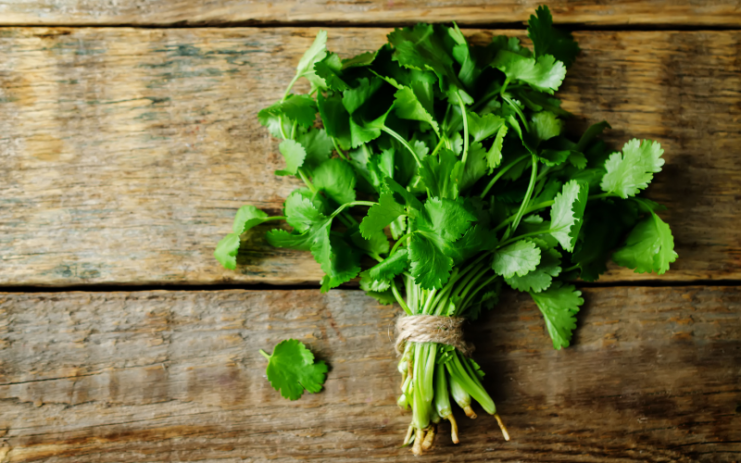
Cilantro comes from the Apiaceae family, and it is a herb known for its leaves that resemble the flat-leaf parsley. The reason why it is a great addition to your pet’s nutrition is that it offers help by providing minerals, and vitamins, and it has high antioxidants. All three elements combined ensure that your dog will be as healthy as possible.
Another benefit of cilantro, which is not strictly medical, is the ability to provide your dog with a chance to fight bad breath, which is common for dogs. Therefore, you can see that this is a great addition to your pet’s nutrition, and you shouldn’t hesitate to include it whenever you have the chance.
Cocoa Powder
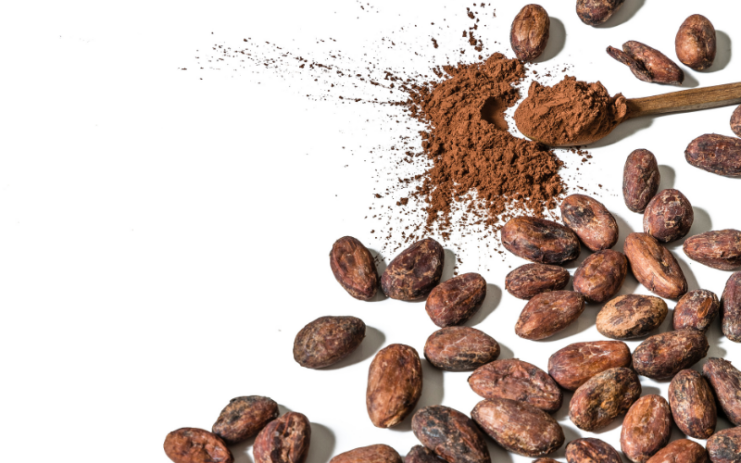
Cocoa powder is one of the spices you should not include in your dog’s diet. The reason is quite simple, besides all the ingredients, this one also has caffeine. As you can presume, this is an ingredient that can increase your pet’s heart rate significantly, which can be quite problematic down the road.
Among all the problems that it can cause to your dog, you will find an increased chance of a heart attack. The symptoms of ingesting cocoa powder are quite simple to spot. We are talking about hyperactivity and restlessness. In more severe cases, you can expect problems such as diarrhea.
Not only that you shouldn’t add this one to your dog’s nutrition, but you should prevent your dog from consuming it. It needs to be said that cocoa powder is included in a variety of products out there, so be sure to check the product description before you purchase something, to avoid cocoa powder.
Turmeric

Turmeric is an anti-inflammatory spice. Adding a little bit of it to your pet’s diet is massively beneficial. The most important one is the positive effect on a pet’s immune system, because of antioxidant and anti-bacterial properties. Thankfully, turmeric is a common ingredient in foods you can find on the market.
Therefore, you do not need to invest a lot of time before you come across the one that has it. Besides being helpful for the immune system, turmeric can also help with bone health. So, you can expect benefits such as joint and hit health. For all these reasons, turmeric is a major addition to your pet’s diet.
Basil
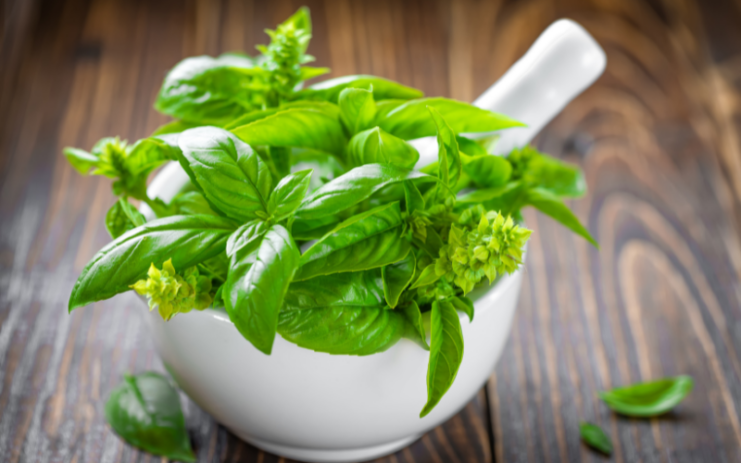
Basil is a herb that’s mostly consumed fresh, and it’s known for its various benefits for humans. Therefore, you shouldn’t be surprised by the fact that this one is equally beneficial for dogs. By consuming basil, your dog can prevent so many different conditions and enhance its health at the same time.
It should be said that basil is not found in most dog food out there. However, that doesn’t mean you shouldn’t include it in some dishes you prepare. Thankfully, this ingredient is not hefty, and you can obtain it easily in a variety of places near you, without investing too much time in finding it.
Onion
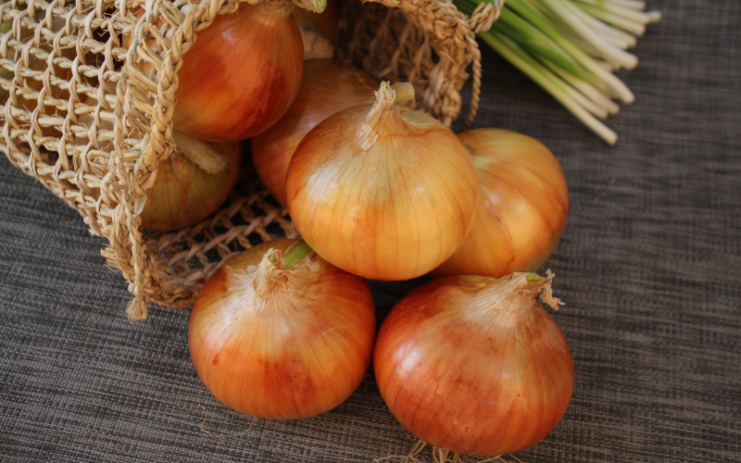
While onions and onion powder are one of the most preferable spices for so many people out there, your pet dog shouldn’t consume them at all. The reason is that it can cause diarrhea and vomiting. The reason why it causes these problems is that it has disulphides and sulfoxides, and both of them can cause damage to the red blood cells.
Nutmeg
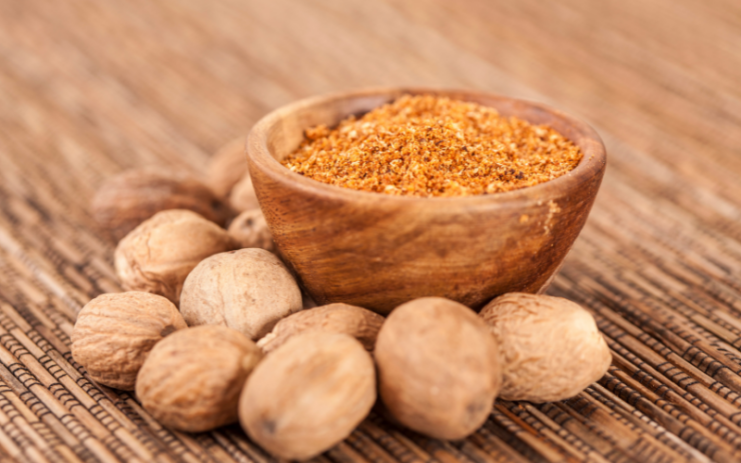
Finally, we want to talk about nutmeg, which is not a spice for you to add to your pet’s food. Of course, the amount of it you consume will cause a different range of problems. If your pet consumes a lot of it, then you can expect it to cause a variety of different problems, including abdominal pain.
We all know just how unpleasant abdominal pain can be, and that’s why you should avoid it completely. Besides the pain, your pet can experience vomiting and drowsiness. You should be aware that consuming nutmeg in large quantities can cause even death in the most severe cases.
Summary
Creating a diet for your pet doesn’t have to be a nightmare as many are thinking. Here, we’ve provided you with a couple of spices and herbs you can include in that diet, and some of them you should avoid. We’re certain this insight will be of much help in the future.

